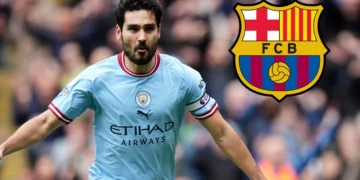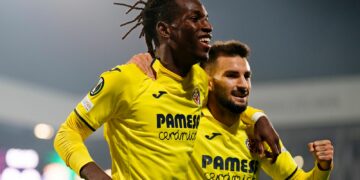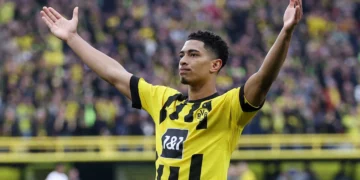The departure of Sergio Busquets from Barcelona signifies not only the end of an era but quite possibly the end of the era itself. As the last remaining member of the legendary Barcelona lineup that graced the field in the 2011 Champions League final, Busquets has bid farewell to the club where he played his final game at the iconic Nou Camp.
News of his impending exit has prompted tributes and accolades from all corners, offering an opportunity to celebrate the pivotal role he played in that extraordinary team. “He was the best,” acclaimed his former coach Pep Guardiola, acknowledging Busquets’ exceptional ability to read the game and anticipate situations.
The most memorable quote about Busquets, often attributed to Vicente Del Bosque, the coach under whom Busquets won the 2010 World Cup, perfectly captures his impact: “You watch the game, you do not see Busquets. You watch Busquets, you see the whole game.”
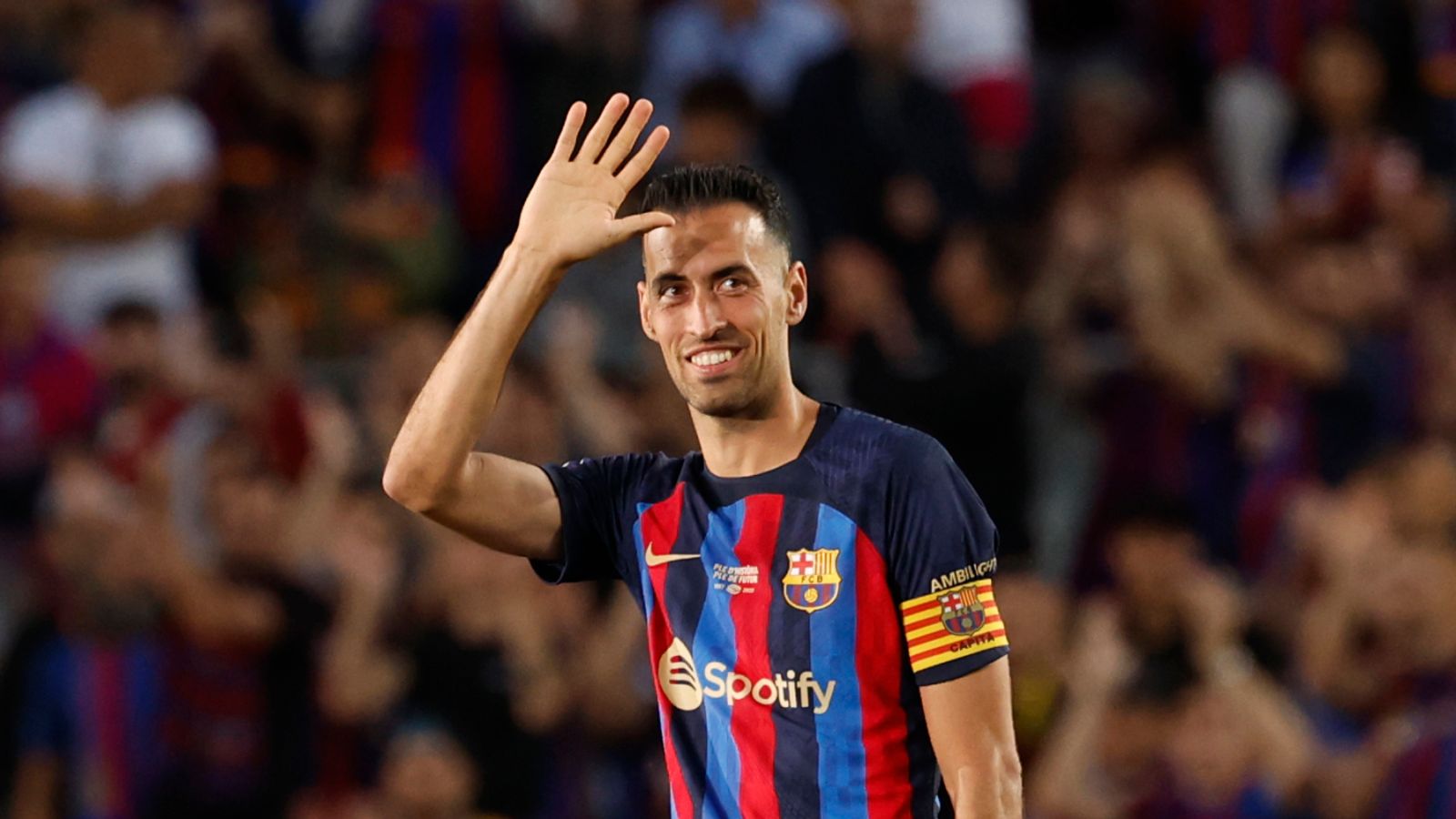
This statement encapsulates the essence of Busquets’ contribution because, despite the brilliance of players like Lionel Messi, Barcelona was not solely a team of individual highlights. It was their relentless rhythm and ball possession that left opponents despondent, and Busquets played a vital role in establishing and maintaining that rhythm.
His former teammate and current Barcelona boss, Xavi Hernandez, declared Busquets as the greatest defensive midfielder in the history of Spanish football. However, this description feels somewhat incomplete, as it focuses on his position rather than his broader impact on the game.
Robert Moreno, who coached Busquets both at Barcelona and with the Spanish national team, finds the label of “holding midfielder” inadequate as well. “It is not the right way to describe him because, for me, a holding midfielder is mostly a defender,” he explains. “Busquets is not that.”
The only reason Moreno, an astute analyst, hesitates to proclaim Busquets as the greatest of all time in his position is the lack of historical evidence. “I do not have information from 50 years ago,” he admits. “But based on my experience analyzing football, he is the best.”
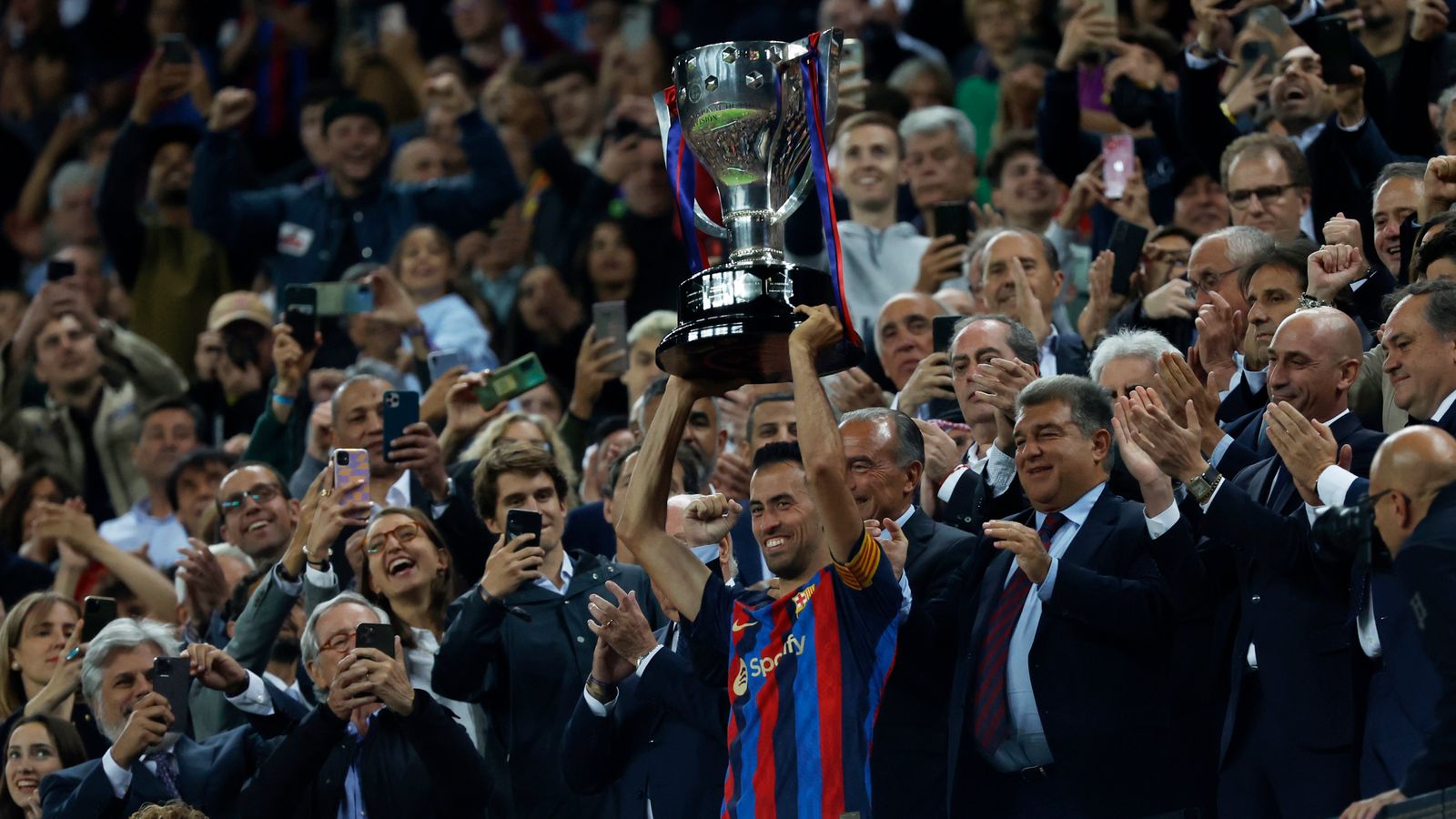
Busquets revolutionized the role of a midfielder, reshaping the expectations and possibilities associated with the position. While players like Claude Makelele had positions named after them for their defensive prowess, Busquets’ contribution was more dynamic. His feet were where Barcelona’s beautiful play originated.
His impact on football was akin to Johan Cruyff’s recognition of Guardiola’s ability to execute his vision a generation earlier. When Guardiola surprisingly promoted Busquets to the first team in 2008, it set the game on a different trajectory.
Cesar Menotti, the renowned Argentine coach and connoisseur of aesthetics, compared watching Busquets to witnessing an extinct species. This unassuming, slightly gawky midfielder existed in an era of athleticism but somehow played the game at his own unique pace.
It appeared implausible. Football had become more physical, focused on turnovers and rapid transitions. Yet Barcelona’s possession-based style allowed Busquets to operate at a deliberate trot rather than a sprint. “He did not move much from the center,” recalls Guardiola. “He could solve all the problems with his brain.”
To fully comprehend the marvels of Busquets’ mind, Moreno’s insights are invaluable. During his time at Barcelona, Moreno was responsible for analyzing the opposition. Before each game, he would consult Busquets for his thoughts. Busquets possessed an uncanny understanding of the opponents, analyzing every aspect of their play and even providing insights on the referee’s temperament.
“He was incredible. It should be impossible with all the pressure on you, with all the difficulties you have around you, and be thinking about that,” marvels Moreno. “He was able to come to the bench during a match and say, ‘They are doing this, and we need to do that to stop them.’ You are, like, what? I was in the stands with a good tactical view, and he was explaining things that I was not able to analyze from up there.”
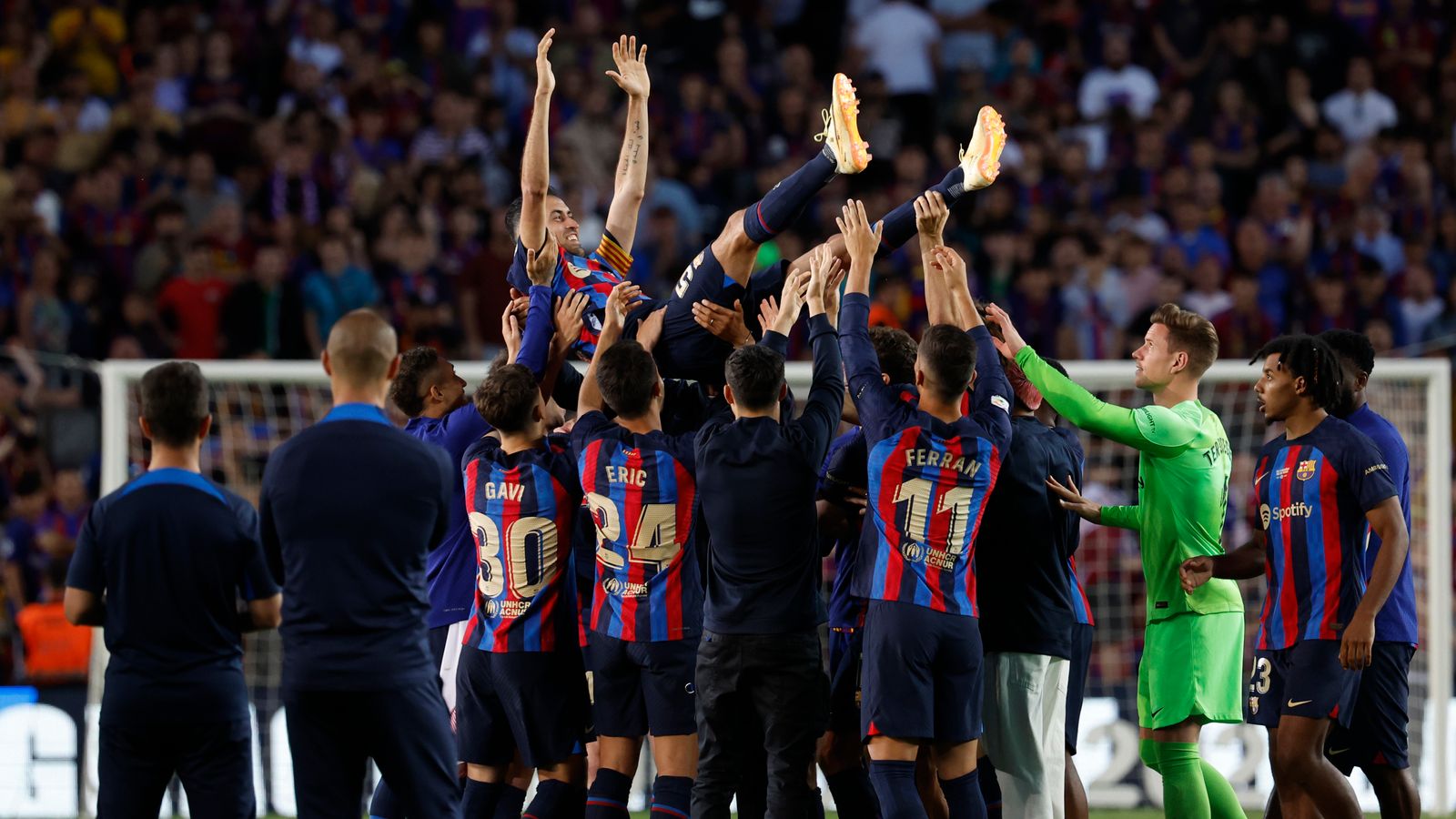
Busquets’ leadership was not defined by rousing speeches or grand gestures. He was not an ostentatious figure. “He was not making incredible speeches in the dressing room. That was not his way,” notes Moreno. Yet, leadership takes various forms, and Busquets was always available for his teammates when and where it mattered most.
“He is a singular case, a coach on the pitch. He understands everything. He has teammates who do not understand the game the same way he does, but with him, you have an advantage because he helps them make decisions. They look at him and go with him.”
It was this exceptional quality that captivated Cruyff. Busquets was only 27 when the man who laid the foundations of Barcelona’s success passed away. Yet, he possessed the footballing intellect of a seasoned veteran. As Cruyff often stated, playing simple football is the most challenging form of the game.
Busquets, with his ability to seamlessly blend the past and future, dominated the present. He personified Barcelona.
“He has spent 15 years at Barcelona, plus three years in the academy,” explains Moreno. “He embodies a style of play that is suitable for that team, that represents Barcelona. If he had played elsewhere, he may not have had the same illustrious career. He is tailored to play that way.
“That is why I say there are not good or bad players; there are players who are adapted to that style or not. If you asked him to play for Liverpool, it would be impossible for him because he is not prepared to run from one box to the other. It is not his skillset.
“But if you desire possession, precise build-up, a high press after losing the ball, and complete control on the pitch, he is the best.”
Perhaps it is Busquets’ status as an anomaly that elicits such a profound sense of loss. Messi may have been considered an extraterrestrial, but even he seemed like an evolution of what had come before, a culmination of increased speed and mental agility. Busquets, on the other hand, was different.
Is he slightly less unique now than when he burst onto the scene? Perhaps. “Rodri is the most similar,” suggests Moreno. However, even in an era where possession-based football has seemingly triumphed, the number of players of Busquets’ ilk remains astonishingly scarce.
At Barcelona, there is no clear replacement for him. “Even if they had Joshua Kimmich or Aurelien Tchouameni, two of the best in that position, Barcelona would still face a significant void because it is impossible to substitute him,” emphasizes Moreno.
“That is the difference with Busquets.”

